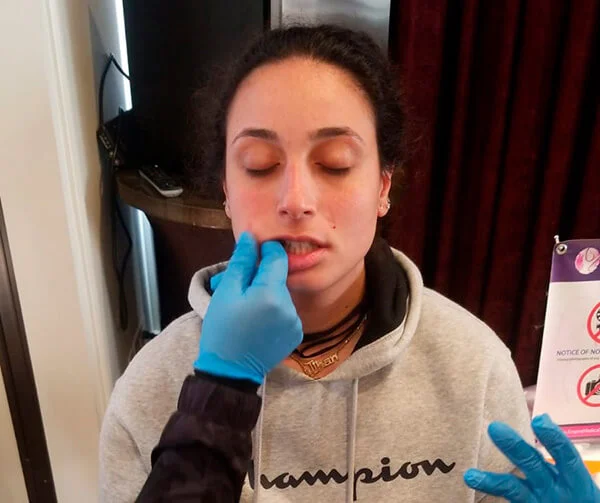Can Dental Hygienists Administer Botox? Here's What You Need
By Dr. Stephen Cosentino
PRESIDENT OF EMPIRE MEDICAL TRAINING
Botox® and alternative botulinum toxin formulations are among the most common cosmetic treatments available today. According to a report by the American Society of Plastic Surgeons, providers administered more than 7 million doses of Botox and its competitors in 2018, more than any other minimally invasive cosmetic treatment.
That’s just one reason facial injections like Botox and dermal fillers are so popular with health care providers. Just as importantly, these outpatient procedures are relatively easy to perform, carry low risk of complications and side effects, and are profitable for medical practices.
Additionally, while regulations vary by state, it’s often the case that medical professionals other than physicians are authorized to administer botulinum toxin treatments. This may include general dentists, registered nurses, and dental hygienists who complete required training courses.
Can Dentists and Dental Hygienists Administer Botox?
It depends.
Many states allow dental professionals to inject Botox at licensed dental practices.
However, some states restrict the practice to licensed dentists and oral surgeons, meaning dental hygienists can’t inject Botox or dermal fillers even if working under the direct supervision of an authorized provider.
Additionally, some states restrict the scope of botulinum toxin treatment in dental hygiene settings. State law often requires dental offices to administer facial injections of Botox for dental indications only, such as the treatment of TMJ disorders and bruxism. Dental professionals covered by such regulations can’t use Botox for cosmetic purposes, such as the temporary reduction of facial wrinkles or deep lining in soft tissue.
Where Can Dental Hygienists Do Botox?
Where applicable state law permits dental hygienists to inject Botox and/or dermal fillers, dentists and oral surgeons can take advantage of a popular and lucrative treatment option that addresses common patient concerns.
Nevada was the first state to permit dental hygienists working under the direct supervision of a licensed dentist or oral surgeon to perform Botox procedures.
About two dozen other states allow dentists to perform or supervise these procedures, with different rules around whether and when dental hygienists can participate. They include but are not limited to:
- Connecticut
- Florida
- Iowa
- Maryland
- New York (with significant limitations)
- Wisconsin
Some other states do not have clear rules around the administration of botulinum toxin and dermal fillers by dental hygienists. In these places, regulating bodies typically make case-by-case determinations.
Training and Credentialing Requirements for Hygienists Who Administer Facial Injections
Where permitted by applicable regulation to administer Botox and other facial injections, dental hygienists must generally complete extensive continuing education coursework.
Depending on the rules in place where they work, a comprehensive Botox training course certified by the American Academy of Facial Esthetics or a similar certification body may be sufficient.
Where regulations are more strict, dental hygienists may be required to obtain a nursing certificate or degree. Most jurisdictions permit licensed practical nurses (LPNs) to administer Botox and other facial injections, provided they:
- Work under the direct supervision of a board-certified provider (such as a physician, nurse practitioner, or dentist) AND
- Complete any required practical training, such as a comprehensive Botox course
An LPN degree typically takes 12 to 18 months to complete, during which the trainee can continue to work as a dental hygienist.


